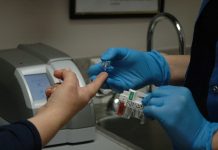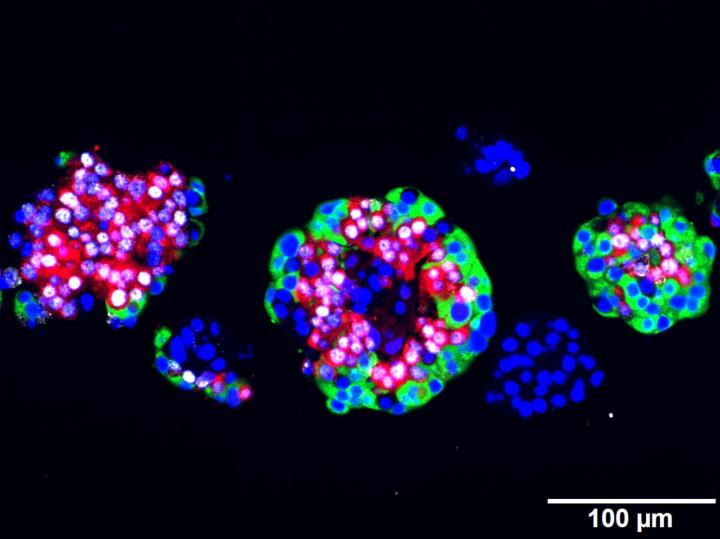April 2009 - Research led by David Hess of the Robarts Research Institute at The University of Western Ontario has identified how to use selected stem cells from bone marrow to grow new blood vessels to treat diseases such as peripheral artery disease (Request a Free Information Package). It's one of the severe complications often faced by people who've had diabetes for a long time. Reduced blood flow (ischemia) in their limbs can lead to resting pain, trouble with wound healing and in severe cases, amputation. The research is published in Blood.
Hess drew human bone marrow and simultaneously isolated three different types of stem cells that co-ordinate together to form new blood vessels. These are called pro-angiogenic stem cells.
They were purified to remove any inflammatory or contaminated cells, and then injected into the circulation of mice which had one of their leg arteries ligated and removed. The researchers showed how these stem cells have a natural ability to hone in on the area of ischemia to induce blood vessel repair and improve blood flow. Hess says this research is clinically-applicable because they studied the function of human stem cells in immune-deficient mice.
The preclinical data from Hess� research was used by a biopharmaceutical company, Aldagen to receive FDA clearance for a multi-center clinical trial involving 21 patients with end-stage peripheral artery disease. The clinical study has been successfully completed, and the group of treated patients experienced improvements in overall clinical status as well as increased blood flow in the affected limb. Aldagen has also successfully completed a 20 patient study using these pro-angiogenic stem cells in patients with end-stage ischemic heart failure.
"We can select the right stem cells from the patient's own bone marrow and put them back in the area of ischemia to allow these cells to coordinate the formation of new blood vessels." says Hess, a professor in physiology and pharmacology at Western's Schulich School of Medicine & Dentistry. "These principles could be applied not only to ischemic limbs, but to aid in the formation of new blood vessels in ischemic tissue anywhere in the body, for example after a stroke or heart attack."
Continue Reading Below ↓↓↓
The research was funded by the Juvenile Diabetes Research Foundation, Aldagen Inc. and the Canadian Institutes of Health Research.
Source: University of Western Ontario










